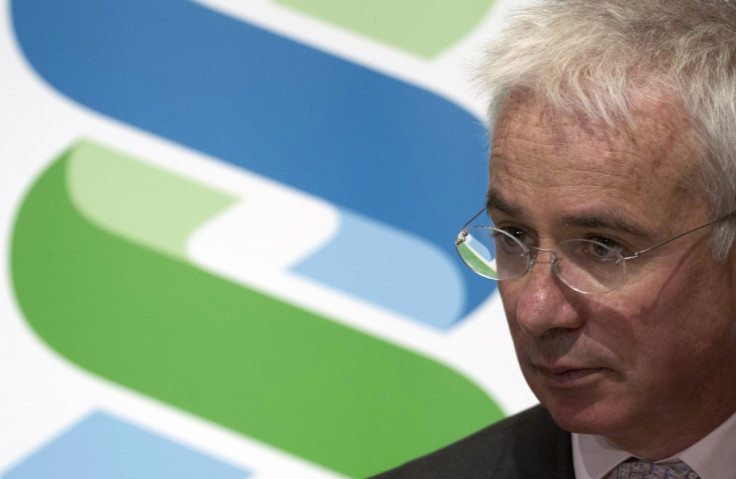Standard Chartered to Face Further Legal Action in UAE as Campaigners Call for Legal Action on Executives

Standard Chartered may face further legal difficulties after the UAE's Central Bank said it would launch court proceedings against the bank for closing the bank accounts of local businesses.
On 20 August, the UK bank agreed to pay $300m to New York's top banking regulator for failing to improve its money-laundering controls.
On top of the fine, it agreed to "exit high-risk client relationships within certain business lines at its branches in the United Arab Emirates", from which a "significant number" of potentially high-risk transactions emanated.
The bank agreed to close its SME business in the UAE within 90 days or face suspension from US dollar clearing through its New York office. It will also suspend the processing of dollar-denominated payments for some Hong Kong-based clients.
Central bank officials in Abu Dhabi have threatened to sue the bank "because of the material and moral damage which is falling on them", Reuters reports, saying the UAE branches had not significantly violated international money laundering rules.
It marks the second time the UK bank has been forced into a $300m settlement payment in three years, with the New York Department of Financial Services' superintendent Benjamin Lawsky saying: "If a bank fails to live up to its commitments, there should be consequences.
"That is particularly true in an area as serious as anti-money-laundering compliance, which is vital to helping prevent terrorism and vile human rights abuses."
Meanwhile, US-based research firm Global Financial Integrity (GFI) has said the new settlement "underscores the inefficiency of fines and monitoring in deterring illicit activity at international banks".
GFI's legal counsel, Heather Lowe, said: "As I noted in August 2012 when the original Standard Chartered settlement was first announced, monitoring and paltry fines are not an effective response in this case.
"In 2004, Standard Chartered was forced to submit to monitoring by regulators for significant anti-money-laundering deficiencies.
"The illicit activity covered in the August 2012 settlement was happening while the first round of monitoring was already in place. Now it appears that the monitoring and fines imposed in 2012 did little to rectify the situation at Standard Chartered.
"They say that the definition of insanity is doing the same thing over-and-over-again and expecting a different result. The settlement today is a prime example of that."
GFI pointed out that while BNP Paribas, Credit Suisse, HSBC, ING, UBS and Wachovia have all been hit with hefty fines in recent years for money laundering or tax evasion, "their executives and employees escaped any punishment for their participation".
The firm recommends that in order to eradicate these sorts of practices, employees who knowingly violate the law should face "appropriate consequences for their actions".
"There will not be substantial progress on combating money laundering through major financial institutions until actors within those banks feel that they will be held accountable for their actions," said GFI's policy counsel Joshua Simmons.
Earlier in August, Standard Chartered reported a 20% decline in profits over the first half of 2014, after news of the New York investigation was made public.
"Rightly or wrongly, there are people questioning Peter Sands. Standard Chartered are in the naughty box at the moment," Nick Brind, a fund manager in Polar Capital who held shares in Standard Chartered until last year, told Bloomberg at the time.
© Copyright IBTimes 2025. All rights reserved.






















